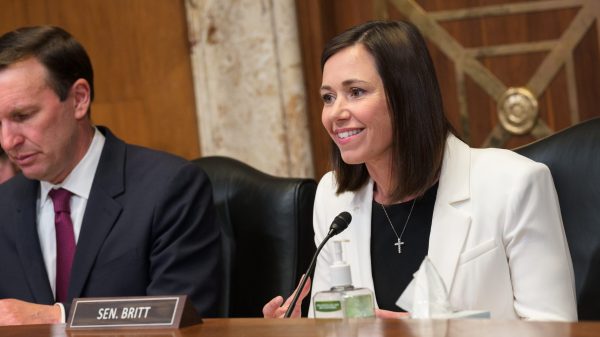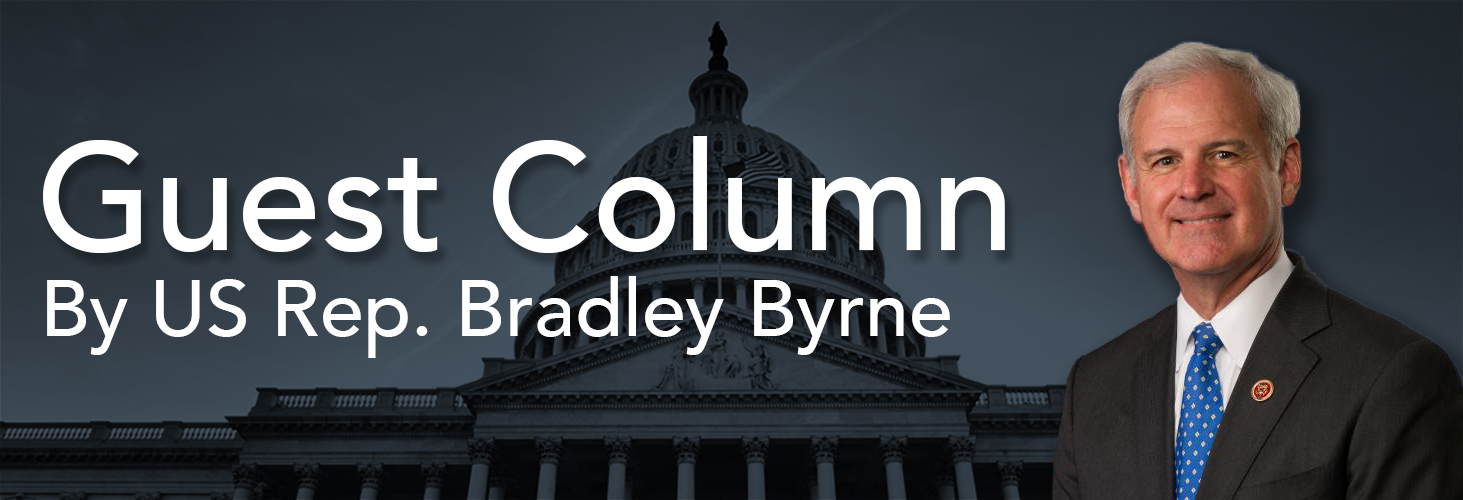By Congressman Bradley Byrne (AL-1)
The federal government is huge. In fact, there are over 275 executive agencies, departments, and boards that employ over two million people. With a bureaucracy this size, it should come as no surprise that fraud and abuse is far too common.
Since coming to Washington, one of my top priorities has been to reduce the overall size of the federal government and to cut waste and abuse. I took a step in the right direction earlier this year when I introduced the Sunset Act.
My bill, known as the Sunset Inefficient and Unaccountable Government Act, would require all federal agencies to be reviewed and renewed by Congress once every ten years. If an agency failed to be renewed, it would go out of existence.
Many in Washington were outraged by my idea because it challenged the status quo. Trust me, there is a lot of resistance when you try to push back against the Washington machine, but I have also heard a lot of positive support for my bill from conservative colleagues and those who support a smaller, more efficient federal government.
In addition to pushing for large-scale reforms to the way the federal government operates, I am also committed to looking for targeted changes that will help cut down on abuse and waste.
Recently, I saw a local news report on Local 15 News in Mobile about over-income families living in taxpayer funded public housing. After looking into the story, it turns out that 25,226 over-income families nationwide live in public housing.
Right here in Alabama, there are 812 cases of over-income residents living in public housing, which ranks fourth highest in the United States. In fact, there is an individual living in public housing in Mobile who makes over $100,000 a year. That is astonishing.
So I set out to learn more about how our public housing programs work. It turns out that families living in public housing are already required to go through yearly income verification checks, but those who are found to be over-income are not required to move out of their taxpayer funded homes or apartments.
This is unacceptable and a waste of taxpayer money, so I went to work on legislation that would help make this right. A few weeks ago, I introduced H.R. 4133, the Public Housing Accountability Act. My bill would establish that any family found to be over-income must vacate public housing within 30 days.
I want to make it clear that I understand the important role public housing plays for many of our nation’s poorest families, but allowing this kind of blatant fraud and abuse is a disservice to those who need truly need public housing.
In fact, the Department of Housing and Urban Development Inspector General found that there are thousands of families across the United States on a wait list for public housing while these individuals take up space. For example, in the New York City Housing Authority, there are at least 10,000 over-income families living in public housing while over 300,000 families are on a waiting list.
Tackling abuse in public housing is just a starting point. From food stamps to Medicaid, fraud is far too common in our nation’s welfare programs. I believe we need to entirely rethink the way our welfare programs work to ensure we are actually helping people get out of poverty instead of incentivizing them to stay there.
At the end of the day, there is far too much fraud and abuse within the federal government. It is time Congress gets serious about reforming government to ensure it is both efficient and effective.



















































